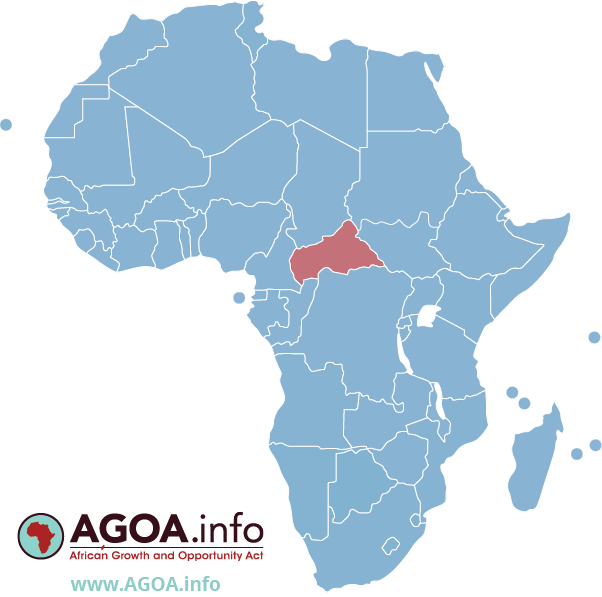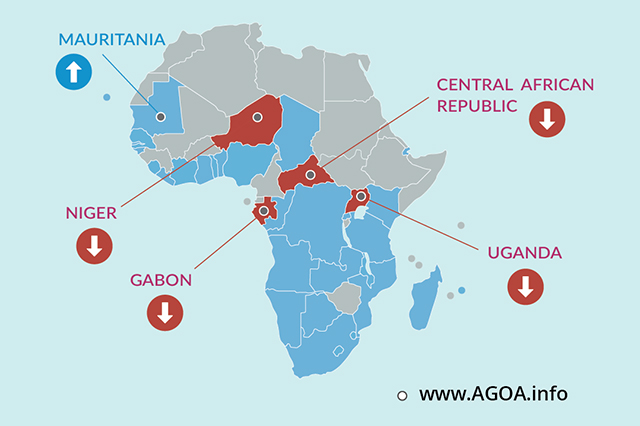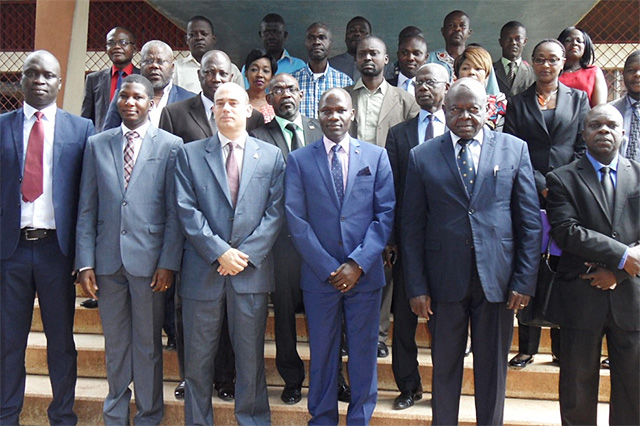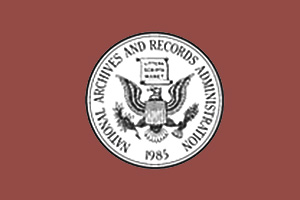Country Info: Central African Republic

Bilateral Trade by Sector: United States - CAR
Value ('1000 dollars), US 'domestic exports' *, US 'imports for consumption' / Includes year-to-date data
Economic Background
The Central African Republic, suspended as an AGOA beneficiary country on 31 December 2003, was reinstated on 15 December 2016, but suspended again effective 1 January 2024.
Subsistence agriculture, together with forestry and mining, remains the backbone of the economy of the Central African Republic (CAR), with about 60% of the population living in outlying areas. The agricultural sector generates more than half of estimated GDP, although statistics are unreliable in the conflict-prone country. Timber and diamonds account for most export earnings, followed by cotton. Important constraints to economic development include the CAR's landlocked geography, poor transportation system, largely unskilled work force, and legacy of misdirected macroeconomic policies. Factional fighting between the government and its opponents remains a drag on economic revitalization. Distribution of income is highly unequal and grants from the international community can only partially meet humanitarian needs. CAR shares a common currency with the Central African Monetary Union. The currency is pegged to the Euro.
Since 2009, the IMF has worked closely with the government to institute reforms that have resulted in some improvement in budget transparency, but other problems remain. The government's additional spending in the run-up to the 2011 election worsened CAR's fiscal situation. In 2012, the World Bank approved $125 million in funding for transport infrastructure and regional trade, focused on the route between CAR's capital and the port of Douala in Cameroon. In July 2016, the IMF approved a three-year extended credit facility valued at $116 million; in mid-2017, the IMF completed a review of CAR’s fiscal performance and broadly approved of the government’s management, although issues with revenue collection, weak government capacity, and transparency remain. The World Bank in late 2016 approved a $20 million grant to restore basic fiscal management, improve transparency, and assist with economic recovery.
Participation in the Kimberley Process, a commitment to remove conflict diamonds from the global supply chain, led to a partially lifted the ban on diamond exports from CAR in 2015, but persistent insecurity is likely to constrain real GDP growth.
Agricultural products
cassava, yams, groundnuts, taro, bananas, sugar cane, beef, maize, plantains, milk
Industries
gold and diamond mining, logging, brewing, sugar refining
Industrial production growth rate
3.9% (2017 est.)
[Source: WorldFactbook 2021]






